Displaced
Stories of people seeking safety.
90% of our funding comes from individual donors. Learn how you can support MSF’s lifesaving care with a gift.
Stories of people seeking safety.

Twic County, South Sudan
Photographs by Scott Hamilton, 2022
Twic County, South Sudan
Photographs by Scott Hamilton, 2022
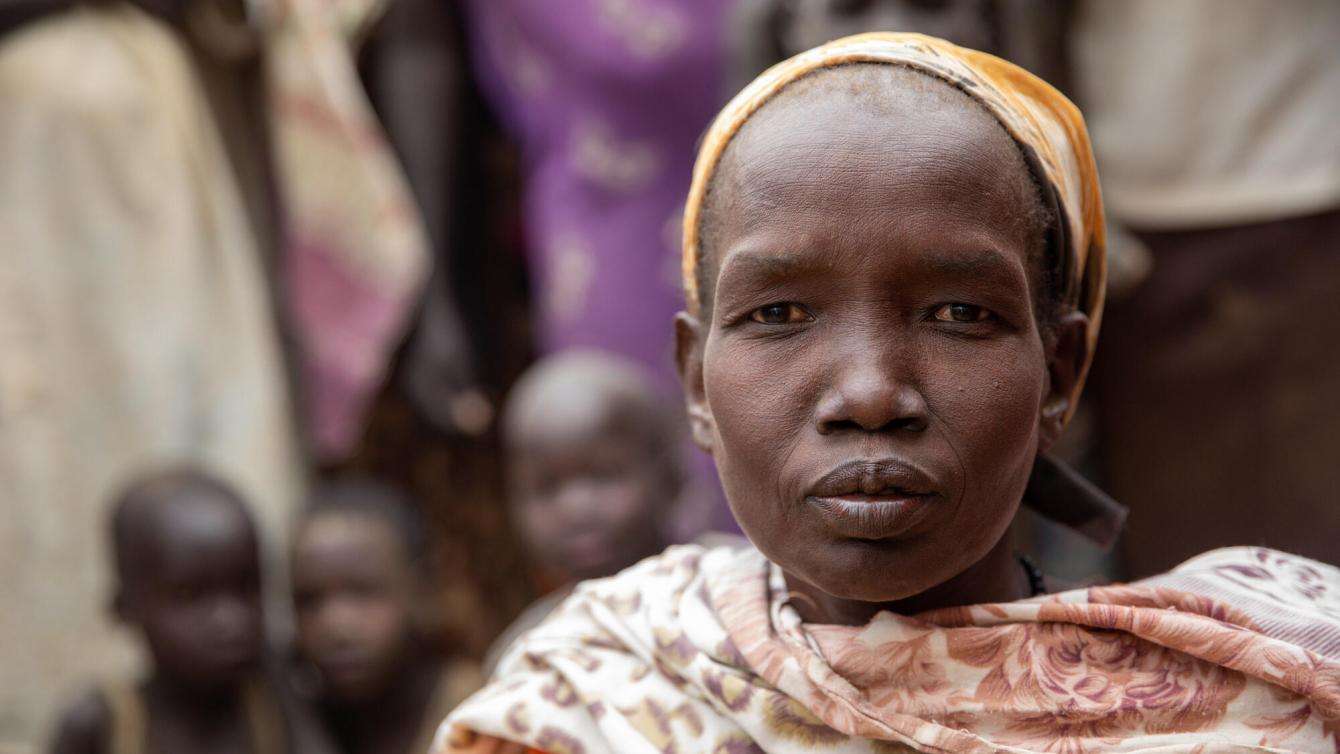
Kwanya, her husband, and their five children live in Gomgoi displacement camp, Twic County.
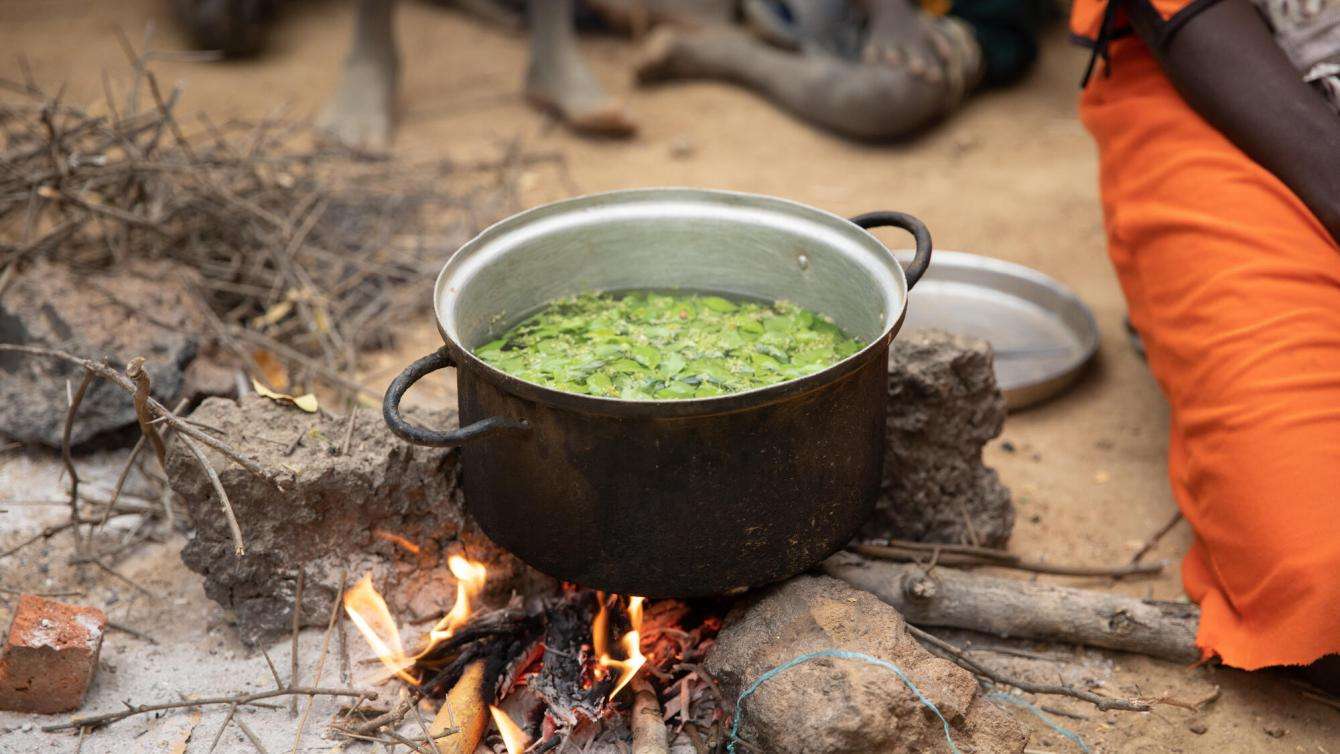
The food supplies are only enough to feed the most vulnerable. Others are forced to search for food or go hungry.
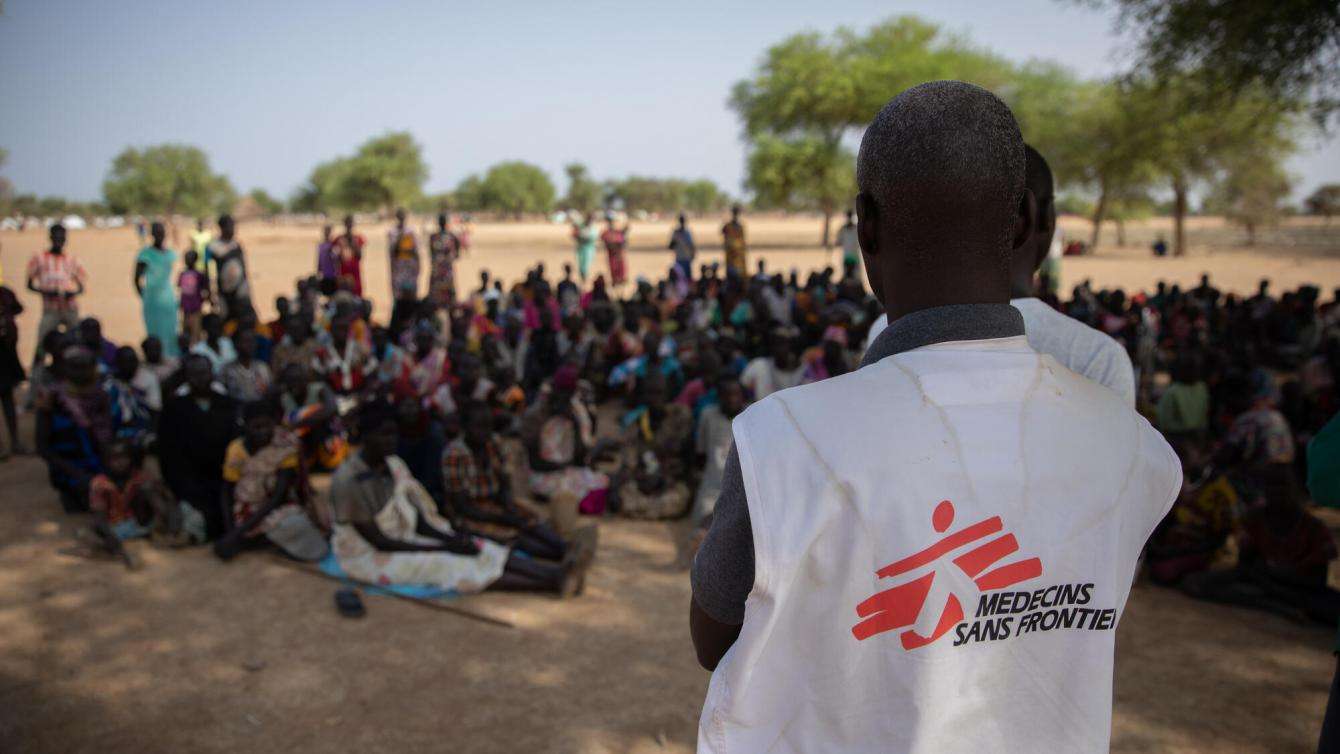
More than 100 people came to talk to MSF staff about the conditions they experienced in Gomgoi.
What you see in that pot above is not a hearty stew, but a thin soup made from boiling leaves that had been picked off the trees just outside camp. Even then, there was only enough for Kwanya’s five children to eat; she and her husband would have to wait for the next Doctors Without Borders/Médecins Sans Frontières (MSF) food distribution or search for food elsewhere.
Kwanya and her family were forced to flee their home in Agok, South Sudan due to violent clashes that erupted in early February 2022. Some of the town’s residents fled north to Abyei, while many went south to Twic County, where they took shelter in open air camps with little-to-no access to essentials like food, clean water, and housing.
MSF sent mobile clinics to three sites across Twic County, where poor living conditions and limited access to food put displaced people at risk of serious health conditions.
Our teams distributed food and clean water, constructed latrines for safer sanitation, and distributed essential supplies including blankets, mosquito nets, jerry cans, and soap to 10,000 families over the course of two months.
With the country’s rainy season approaching, the future remains unclear for displaced people in the region. But for the people who fled Agok, the violence back home meant returning was not an option. As one father put it: “It is better for me to suffer here.”
Kharkiv, Ukraine
Photographs by Adrienne Surprenant, 2022
Kharkiv, Ukraine
Photographs by Adrienne Surprenant, 2022
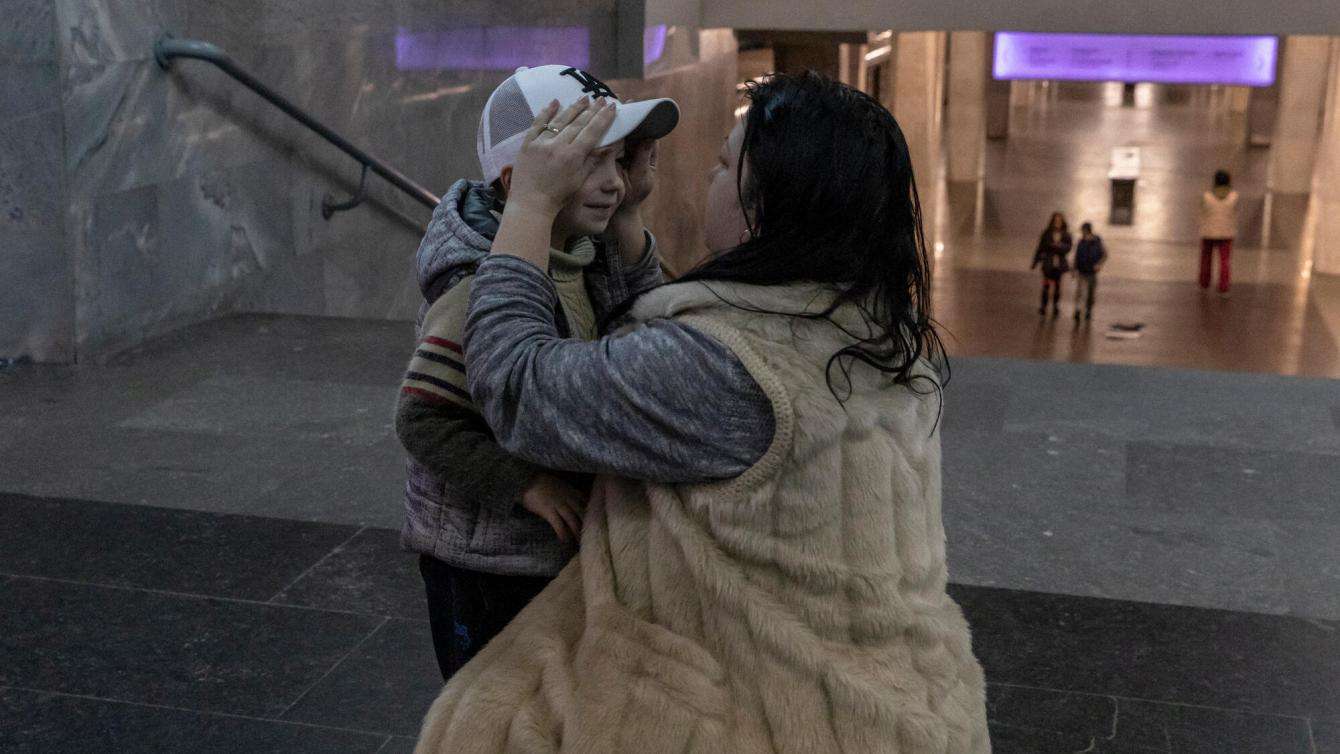
Elena and her son, Kirill, sought refuge from Russian bombs in a Kharkiv metro station.
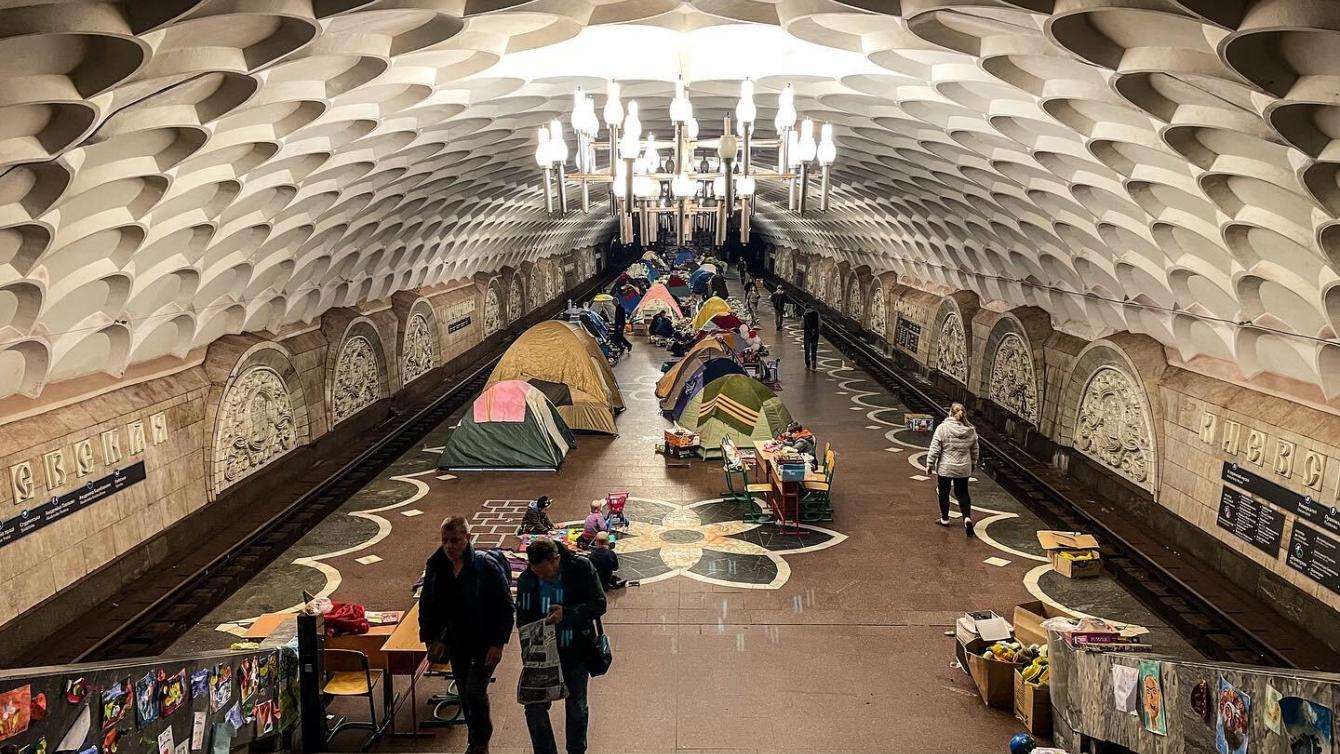
2022 © Mohammad Ghannam/MSF

Elena receives care from MSF staff at a mobile health clinic, one of several across the city.
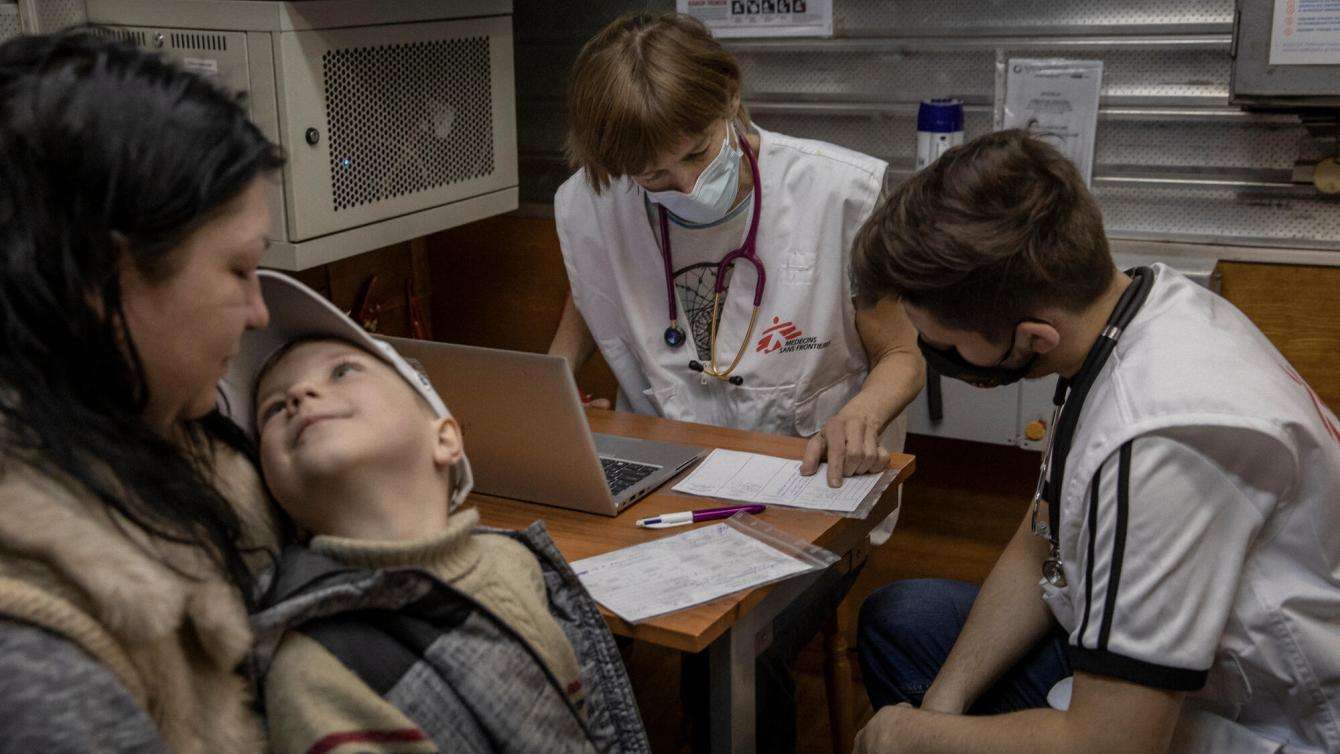
Kirill beams at his mother while they receive care from MSF staff.
Ukraine 2022 © Adrienne Surprenant/MYOP
On the very first day of bombing in Kharkiv, Ukraine, 6-year-old Kirill understood that war had reached his city. Trying to comfort Kirill, his mother Elena told him it was only fireworks. “Mom, it is not fireworks,” he said. “Please save me.”
Elena cried as she told the story to MSF staff. She and her family found refuge in Kharkiv’s underground subway system, where they could hear Russian shelling destroying the only home they’d ever known.
Since the beginning of the war in Ukraine, Kharkiv, the country’s second-largest city, has been severely impacted by Russian attacks. While many of the 1.8 million people who lived in the city before the war fled, some who were unwilling or unable to leave remain. For Elena, the thought of abandoning her city never crossed her mind.
"Kharkiv is my native city,” she told us, “I never left it. I never thought about going to other places."
To ensure care for people trapped underground, MSF sent mobile clinics to several stations on three of Kharkiv’s subway lines, where we treated a wide range of health conditions, both pre-existing and related to or exacerbated by the war. In spite of everything Elena was going through, the care she received afforded her a small measure of comfort:
"It is better at home! But at least in the subway there is safety, and the workers treat us well. I am grateful."
Mueda, Mozambique
Photographs by Mariana Abdalla, 2022
Mueda, Mozambique
Photographs by Mariana Abdalla, 2022

Atija first came to Eduardo Mondlane camp after fleeing violence—now she helps others in the same position.

As an MSF traditional birth attendant (TBA), Atija counsels pregnant and lactating women in the camp.
Mozambique 2022 © Mariana Abdalla/MSF
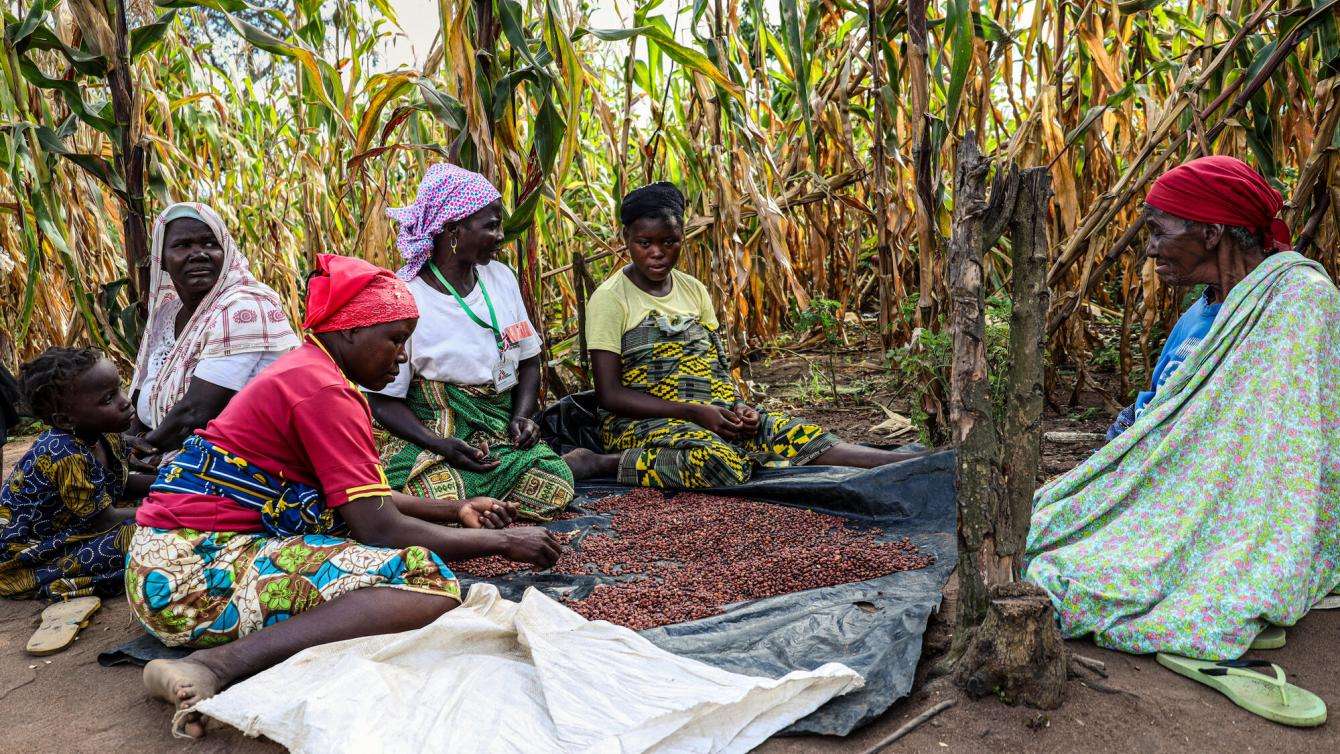
Atija Bacar counsels Amina, 9 months pregnant, and the women in her family.
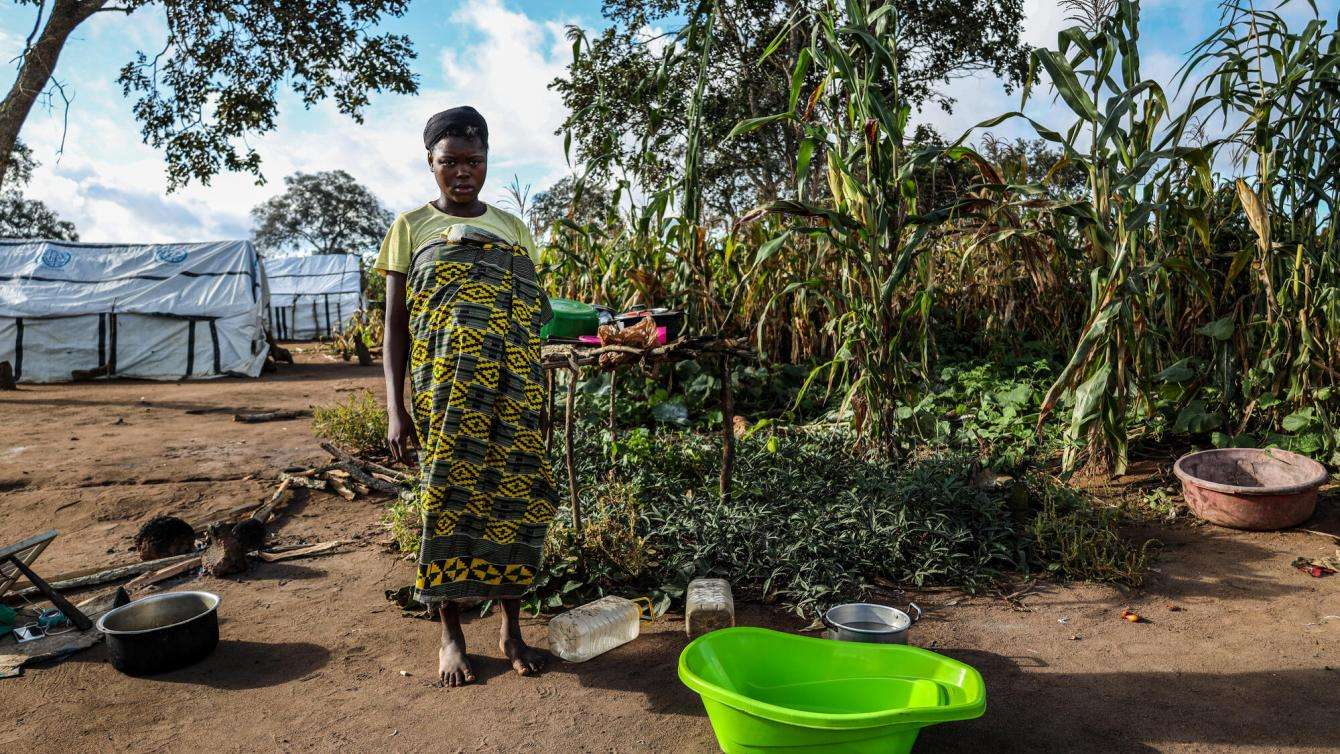
Amina is from the same town as Atija, Mocímboa da Praia, which has suffered from violent conflict.
Atija is an MSF traditional birth attendant living in Mozambique’s Eduardo Mondlane camp for displaced people. There, she spends most of her day walking from tent to tent providing assistance and counsel to pregnant and lactating women. But just a year ago, when she first arrived in the camp, she was in a very different position.
In March 2021, violence erupted in Atija’s hometown of Mocímboa da Praia. Six brutal days of attacks razed homes to the ground, devastated infrastructure, and killed hundreds of people—including Atija's husband and son. There was no other option but to flee. After skipping from village to village, Atija found herself in the newly established resettlement site that would become Eduardo Mondlane.
“Here everyone sleeps on the floor and the roofs are not strong,” she told us. “I am worried they will not stand up to the rainy season.”
Since 2017, nearly 700,000 people have been displaced by fighting between government forces and non-state armed groups in northern Mozambique’s Cabo Delgado province. MSF teams continue to provide health care—including mental health care—by supporting health centers and running mobile clinics. As the fighting has intensified over the past year, MSF teams have expanded capacity, but much more help is needed.
Not long after she arrived, Atija joined MSF’s local care team in Eduardo Mondlane. Despite everything she has experienced, she—like all MSF staff—is devoted to helping others:
“When I arrived here, this place was a forest. Some good people helped me to get settled. Now I can also help pregnant women. I know they need my support.”
Some humanitarian crises make the headlines—others don’t. Unrestricted support from our donors allows us to mobilize quickly and efficiently to provide lifesaving medical care to the people who need it most, whether those needs are in the spotlight or not. And your donation is 100 percent tax-deductible.
© Médecins Sans Frontières 2024 Federal tax ID#: 13-3433452
Unrestricted donations enable MSF to carry out our programs around the world. While we try to honor requests to earmark, should we receive more gifts than we can use for a program, we will reallocate them where the needs are greatest.
For Donors
For Supporters
For Media
For Recruits
General Interest
© Médecins Sans Frontières 2024 Federal tax ID#: 13-3433452
Unrestricted donations enable MSF to carry out our programs around the world. While we try to honor requests to earmark, should we receive more gifts than we can use for a program, we will reallocate them where the needs are greatest.
Your gift helps us provide medical humanitarian aid for hundreds of thousands of people each year.
Learn more87%
Programs
12%
Fundraising
1%
Management & General Admin

We need your support to continue this lifesaving work.